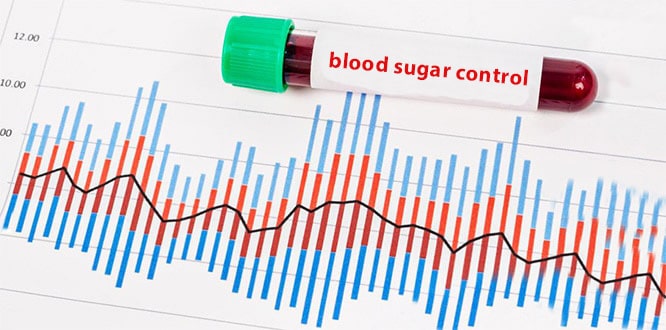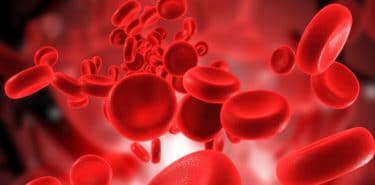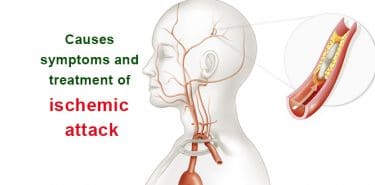Hypoglycemia is a condition caused by a very low level of blood sugar, body’s main energy source. This is most commonly seen in patients with diabetes who use insulin. Hypoglycemia may occur as an undesired side-effect of some drugs, from a rare pancreatic cancer such as insulinoma, or liver and kidney failure. Initially, conditions such as palpitation, sweating, feeling of hunger, headache, irritability and restlessness arise. If it is untreated, speech and visual disturbances, eclampsia, coma and death can occur. In the treatment of hypoglycemia, if patient is conscious, he/she should immediately take 4-5 sugar cubes. In unconscious patients, glucose is given intravenously in hospital. Since hypoglycemia is a very urgent situation, emergency help should be requested immediately.
Table of Contents
What is hypoglycemia?
Hypoglycemia (low blood sugar) occurs when blood sugar falls below 70 mg/dl in people with diabetes and 50 mg/dl in those without diabetes. Hypoglycemia is a condition that requires immediate intervention. Hypoglycemia is the underlying cause in approximately 70% of patients with consciousness disorders. 20% of diabetic patients are admitted to emergency at least once because of hypoglycemia.
Hypoglycemia types
It is divided in two categories as Diabetic and Non-diabetic Hypoglycemia:
Diabetic hypoglycemia
Blood glucose level fall below 70 mg/dl. Note that the threshold is higher than with non diabetics, hence need for diabetics to monitor their blood glucose levels more frequently.
Causes of diabetic hypoglycemia
- Overuse of insulin
- Overuse of sugar-lowering pills
- Malnutrition and skipping meals
- Kidney failure
- Doing an exercise after insulin intake
- Infections
- Stress
- Hot weather
Non-diabetic hypoglycemia
Blood sugar below 50 mg/dl for people who are not suffering from diabetes. Some diseases and malnutrition can lead to non-diabetic hypoglycemia.
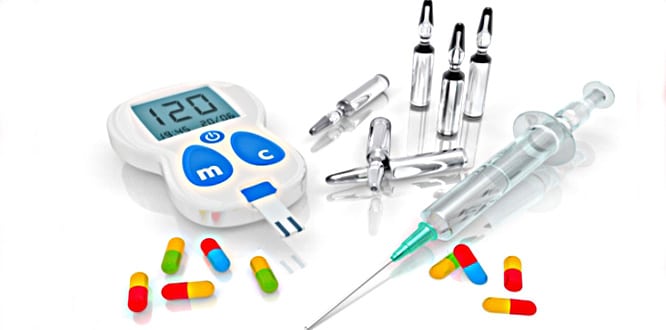
Causes of Non-diabetic hypoglycemia
- Pancreas diseases
- Removal of some of the stomach
- Use of alcohol
- Liver failure
- Kidney failure
- Adrenal and pituitary gland failures
- Some drugs such as quinine used in malaria treatment, salicylate used in rheumatism
- Increased sugar requirements in cases of excessive exercise and infection
- Anorexia nervosa disease or poor nutrition
What is reactive hypoglycemia?
It happens when the blood sugar drops 2 to 4 hours after eating. Hand tremors and cold sweating are most common symptoms. The biggest problem is that the person does not still feel full despite eating. Reactive hypoglycemia often occurs in hypothyroid patients, people who exercise heavily, those who suffer from malnourishment or a shock diet, and people who consume alcohol and caffeine too much.
Causes of hypoglycemia
Blood should always have a certain level of glucose. Many hormones serve to keep the blood glucose at a constant level. Insulin reduces the increase of blood sugar after meals. Glucagon increases blood sugar after fasting or intensive exercise. If glucose levels drop even more, then adrenaline, cortisol and growth hormones intervene to increase blood sugar level again. Increased secretion of insulin causes hypoglycemia.
Symptoms of hypoglycemia
- Hand and body tremors
- Cold sweats
- Fatigue
- Palpitation
- Irritability, anxiety, restlessness
- Nausea
- Feeling hungry
- Dizziness
- Blurred vision
- Tingling in tongue, rim and cheeks
- Headache
- Epilepsy
- Speech disorders
The symptoms of low blood sugar varies from person to person. It may be more difficult to perceive them for elderly, children and people with diabetes. If blood sugar falls at night, symptoms such as sweating, palpitations, headaches or nightmares can be experienced.
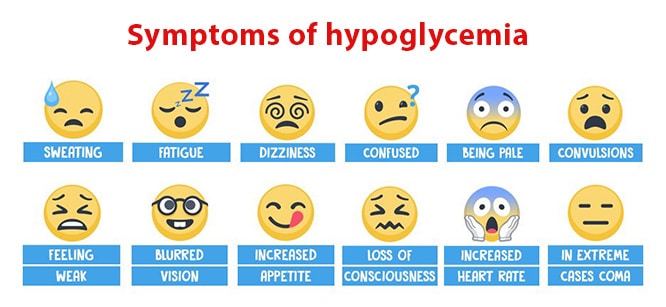
What is hypoglycemic attack?
Sudden onset of symptoms because of decreased blood glucose is called hypoglycemic attack. Hand and body tremors, cold sweats, dizziness, weakness, fatigue, irritability, hunger, restlessness are the main symptoms.
What kind of health problems does it trigger?
- Coma, epileptic seizure, stroke, movement disorders
- Myocardial infarction (heart attack), heart rhythm disorders
- Bleeding in the back of the eye
- Hypothermia
- Behavioral disorders
- Injuries and deaths
Diagnosis of hypoglycemia
Blood glucose can be monitored by pricking the fingertip with a blood glucose meter. Besides, blood sample taken from the patient can be analysed in laboratory tests. In order to diagnose hypoglycemia, blood glucose should be low and cause distress in the patient. When blood sugar is raised, the aforementioned symptoms should disappear.
Therefore, blood glucose levels should be measured at all stages. To determine the cause of hypoglycemia, biochemical tests such as fasting and postprandial blood glucose measurement, sugar loading test, measurement of some hormone levels and measurement of liver and kidney enzyme levels can be done.
Hypoglycemia treatment
Hypoglycemia requires an emergency treatment. When there is a sudden deterioration in diabetic patients, hypoglycemia is often the cause. If there is no possibility to measure blood glucose at that moment, because low sugar level is more dangerous than high blood sugar, it should be treated immediately.
Hypoglycemia emergencies
Diabetics and their relatives should be aware of what to do in case of a hypoglycemia attack:
- If the patient is conscious during the hypoglycemia attack, 15-20 grams of sugar (preferably 3-4 pieces of glucose tablets, 4-5 sugar cubes or 150-200 ml of fruit juice-lemonade) are given.
- Blood glucose level should be measured again 15 minutes after this intervention. If the blood glucose is still low, the same intervention is repeated.
- The person should be fed within 30 minutes to prevent hypoglycemia after the first intervention is done.
- You should go to the nearest emergency service.
Don’ts
- An unconscious patient should never be given food or drink.
- In case of low blood glucose levels, first, simple sugars should be eaten. Food with high fat and protein content should be avoided because they may slow down digestion and delay the postprandial blood glucose.
- After a hypoglycemia attack, you should not work heavily or drive immediately.
Hypoglycemia medications
- Glucose: Glucose is very important for vital functions. If patient is conscious, it is administered orally (glucose tablet or sugar cubes) or intravenously if not conscious.
- Glucagon: Glucagon is an important hormone secreted from the pancreas and increases blood sugar. In case of severe hypoglycemia, blurred consciousness, 1 mg glucagon may be administered subcutaneously or intramuscularly in patients over 5 years of age. Glucagon should not be given to hypoglycemic patients caused by sulfonylurea drugs because it may increase insulin secretion.
Side effects can include nausea and vomiting. Symptoms of hypoglycemia may sometimes last longer or may recur. Therefore, patients can sometimes be kept under observation in the hospital.
Other methods used in the treatment of hypoglycemia
- Insulin pump: Severe hypoglycemia attacks may occur, when insulin is used in the form of multiple doses, then insulin pumps that secrete insulin can be inserted under the skin. There are also insulin pumps with sensors. These pumps can protect the patient with type 1 diabetes from hypoglycemia by interrupting the release of insulin when blood sugar falls according to the established threshold.
- Pancreas or islet transplantation: Studies on pancreatic transplantation and transplantation of islet cells with insulin secreting cells are continuing.
Herbal medicine for Hypoglycemia
The absence of emergency treatment in hypoglycemia attacks causes severe consequences such as coma and death, therefore don’t waste any time with alternative medicines.
Hypoglycemia and nutrition
- Don’t skip meals in order to keep blood sugar levels constant
- Be sure to have snacks in between meals.
- The number of meals is determined by the type of treatment and living conditions. Diabetics who use short-acting regular insulin should be fed a total of six meals.
- Make sure that the main meals do not exceed 5 to 6 hours.
- Don’t eat junk food as a snack.
- Reduce alcohol consumption.
Hypoglycemic diet
- The problem of hypoglycemia occurs mostly in people with diabetes. It can be difficult to adjust the dietary content which will not only disrupt the treatment plan of the diabetes, but will also protect the person against hypoglycemia at the same time. You can get a doctor and dietician advice on this.
- You should note down any food causing hypoglycemia.
- Main meals and snacks should not be skipped.
- Diabetic patients who frequently experience hypoglycemia should pay attention to their cinnamon consumption.
Breakfast
One of the important meal to stave off hypoglycemia attack is breakfast. Some recommendations:
- Boiled eggs
- 1 slice of whole wheat bread
- Vegetables
- Porridge
- Milk, yogurt
- Cheese toast prepared with whole grain bread
Lunch
Meals should be light, but rich in protein, healthy fats and complex carbohydrates. Some suggestions:
- Tuna sandwich with whole-grain bread
- Sandwich with chicken salad
- Grilled fish
- Baked sweet potatoes
- Chicken salad with tomatoes and other vegetables
If you have hypoglycemia problems, you should know the glycemic index of the foods you eat.
Dinner
Evening meals should be lighter than other meals and contain protein and complex carbohydrates. Some suggestions:
- Lentil or quinoa soup
- Brown rice
- Salmon with steamed vegetables or salad
- Lentils, red beans and chickpeas
Snacks
Small, nutritious snacks should be added in between meals to keep your blood sugar levels. Some healthy snack options include:
- Nuts such as almonds, walnuts
- Fruits such as avocado and banana
- Whole grain crackers
- Milk, yogurt
- Hummus with carrot, pepper and cucumber
If you are exercising regularly, you should eat more often.
Hypoglycemia in infants
There are certain conditions that prepare ground for hypoglycemia in infants. These are:
- Low fat mass in premature and low birth weight infants
- Oxygen deprivation at birth, increased energy expenditure due to low body temperature
- Too much use of glucose due to excessive brain/body mass
- Some congenital metabolic diseases
- Diabetic mother
In newborns, blood glucose levels of less than 50 mg/dl are considered hypoglycemia and should be treated immediately.
Symptoms of hypoglycemia in infants
- Weak or loud cry
- Decrease in breastfeeding
- Vomiting
- Rapid shallow breathing
- Bruising
- Fall in body temperature
Symptoms indicating hypoglycemia in newborns are different from adults. In addition, these symptoms are common symptoms in most diseases in infants. Therefore, other diseases should be reviewed.
Hypoglycemia in the elderly
The elderly are at greater risk for hypoglycemia. Memory problems, dosage errors of insulin and other drugs, lack of blood sugar monitoring, and irregular nutrition increase the possibility of hypoglycemic attacks.
Patients should be educated about hypoglycemia.The first target in the treatment of elderly diabetics is to avoid hypoglycemia.
Prevention of hypoglycemia in patients with diabetes
- Use your medication at the recommended dose and at recommended times.
- Measure your blood glucose levels at regular intervals.
- Do not skip main meals or snacks.
- Take a break in long trips.
- Always take a snack with you.
- Reduce the insulin dose or consume carbohydrate rich nutrients if you plan to exercise.
- If you have any other drugs you use, find out if they cause hypoglycemia.
Suggestions for those with hypoglycemia problems
- If you are not diabetic, but often experience hypoglycemia attacks, first contact a doctor to learn the underlying cause.
- You and your relatives should learn to recognize the symptoms of an attack of hypoglycemia and the actions to be performed in such a case.
- Record your blood glucose level at regular intervals.
- If you have a risk of experiencing hypoglycemia during sleep, measure your blood sugar around 3:00 am or 4:00 am.
- Carry some sugar with you.
- Do not starve yourself for a long time and do not eat excessively durin meals.
- Do not exercise on an empty stomach. For more: >>> Hypoglycemia

